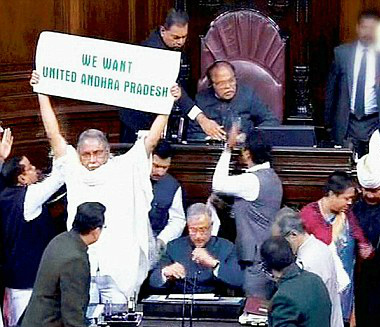Members of Parliament are not liable for anything they say in the Parliament or in any of its committees. Article 105(2) of the Constitution of India provides this shield from judicial scrutiny. With their statements subject only to the disciplinary rules of the Parliament, the good sense of the Members, and the control of proceedings by the Speaker, let us quickly look at the provisions that circumscribe a Member’s freedom of speech in Parliament.
The limits of a Member’s freedom of speech in Parliament
 Article 121 of the Constitution prohibits discussion on the conduct of any judge in the higher judiciary in the course of his duties except on a motion to present an address to the President for the removal of a judge. Rule 352 of the Rules of Procedure and Conduct of Business in the Lok Sabha (“Rules of Procedure”) says that a Member shall not reflect on the conduct of persons in high authority save on a substantive motion drawn in proper terms and Rule 353 of the Rules of Procedure requires that no allegation of a defamatory or incriminatory nature shall be made by a Member unless he gives the Speaker and the Minister concerned adequate notice to such effect.
Article 121 of the Constitution prohibits discussion on the conduct of any judge in the higher judiciary in the course of his duties except on a motion to present an address to the President for the removal of a judge. Rule 352 of the Rules of Procedure and Conduct of Business in the Lok Sabha (“Rules of Procedure”) says that a Member shall not reflect on the conduct of persons in high authority save on a substantive motion drawn in proper terms and Rule 353 of the Rules of Procedure requires that no allegation of a defamatory or incriminatory nature shall be made by a Member unless he gives the Speaker and the Minister concerned adequate notice to such effect.
How are these fetters on a Member’s freedom of speech in Parliament enforced? As we shall see below, the Speaker has two powers: he can either expunge some types of speech or he can take the drastic step of suspending a Member.
The power of the Speaker to expunge some types of speech
Rule 380 of the Rules of Procedure allows the Speaker to order the expunction of words that he finds defamatory, indecent, unparliamentary or undignified, incriminatory, allegatory, or insinuatory against a high dignitary, authority, or organisation.
The power of the Speaker to suspend a Member
Under Rule 373, the Speaker can direct any member whose conduct is, in his opinion, grossly disorderly to withdraw immediately from the House and that Member has to absent himself during the remainder of the day’s sitting. The Speaker can also name any Member found persistently and wilfully obstructing the ordinary course of business by shouting slogans or otherwise. Under Rule 374, the Speaker shall place a motion before the House to determine whether that Member should be suspended for a period not exceeding the remainder of that session of Parliament. Under Rule 374A, that Member shall stand automatically suspended from the House for five consecutive sittings or the remainder of the session. Rule 375 allows the Speaker to suspend the sitting or adjourn the House if there is grave disorder in the house.
Thus, with no judicial scrutiny, there is no penalty that the Speaker can impose on a Member for an unwise choice of words, except the drastic step of suspension.
